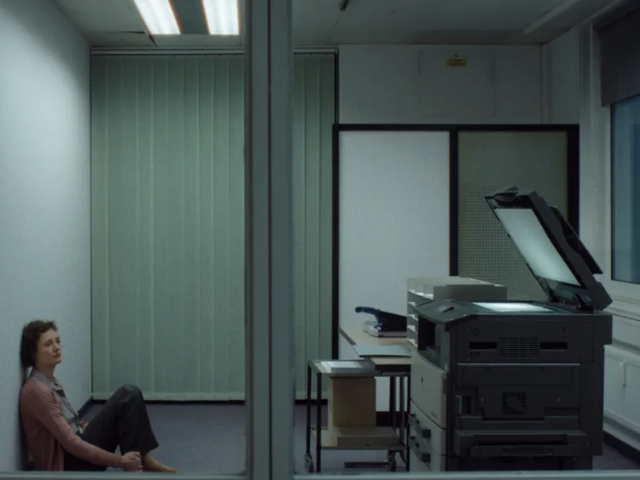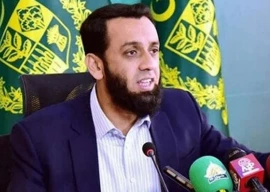It is hard to make accounts of genocide sound boring and irrelevant, but a three-member panel at the Karachi Literature Festival managed to pull it off without trying.
Maybe it was the fact that it was ungodly early for a Sunday morning (it began at 10 am). Maybe it was the format of the discussion, which did not lend itself to the panel actually interacting with each other. Or maybe it was the discouragingly empty ballroom in which the session was conducted. But the panel discussion on “The emergence of Bangladesh: a military failure or a collapse of civil society” failed to spark any semblance of a meaningful conversation about the trauma of 1971.
Much of the conversation – if one can call it such – centred on “Dead Reckoning”, a book written by Indian-born Oxford University researcher Sarmila Bose, in which she challenges the estimates of the numbers of people killed, injured and raped in the 1971 war that led to Bangladesh’s independence. The official Bangladeshi account of the war puts the casualty count at three million dead. Bose considers this a gross exaggeration and estimates that no more than 100,000 were killed.
On Sunday morning, Bose briefly summarised her main thesis of the book, and placed it in the context of her opposition to what she repeatedly referred to as “single-identity nationalism”. Though she tried very hard not to make it sound as such, but it was very difficult to escape the sense that she was drawing a moral equivalence between the murderous nationalism of the Pakistani troops involved in the slaughter and the eminently more justifiable Bangladeshi sense of victimhood. Yet her fellow panellists did not seem to view her book this way.
Political analyst and The Express Tribune columnist Khaled Ahmed called Bose’s work an important re-examination of the 1971 war. He then went on to speak about how most nations have a tendency to create foundation myths that are particularly painful as a means of evoking emotion in their citizens when they think about the country. However, he stopped well short of endorsing any of the numbers that Bose estimates in her book as being the body count of the conflict.
The third panellist, A R Siddiqi, a retired Pakistan army brigadier, seemed to conform a little more closely to the Pakistani nationalist view of the conflict, but he was not challenged or debated by the other two, who were very clearly opponents of any form of nationalism. “It was Pakistan’s darkest hour. It was India’s finest hour, the hour of their greatest triumph,” said the brigadier, of the conflict, one of the few things he said that were not simply readings from his own or other people’s accounts of the war.
Yet perhaps what was more important than what was said in the session was what was not said. There was little discussion of the manner in which a nation allowed itself to get the point where hundreds of thousands of its citizens were slaughtered by their own military. The conversation about the atrocities themselves seemed to focus far more on the numbers game rather than an actual description of the horror visited upon the Bangladeshi population by the Pakistani military.
It was perhaps the lack of this discussion that led one of the audience members, to positively scream in anguish: “Are we really still playing the numbers game, 41 years after the war? What does it matter how many were murdered or raped?” The session ended with the audience cheering on that woman louder than they had done for any of the panellists.
Published in The Express Tribune, February 13th, 2012.
COMMENTS (4)
Comments are moderated and generally will be posted if they are on-topic and not abusive.
For more information, please see our Comments FAQ





1732696613-0/BeFunk_§_]__-(59)1732696613-0.jpg)
1732622842-0/Express-Tribune-(9)1732622842-0-270x192.webp)


1732701958-0/BeFunk_§_]__-(61)1732701958-0.jpg)
1732705114-0/Untitled-design-(7)1732705114-0-270x192.webp)






uh... nice article but tirmizi doesn't seem to have followed the discussion properly. history is not just about social justice but about establishing facts which is quite an important exercise. the writer would have been well-served in examining the backgrounds of the speakers and the rabble-rousers in the crowd more closely. sloganeering can be had anywhere. i'm sorry actual debates about history are dull for you...
This somehow reminds me about those statements quibbling over how many Jews died in the Holocaust. Messed up.
There are various matters on which different sections of our society cant have same opinion but one thing is agreed upon that conversion of East Pakistan into Bangladesh is clearly the failure of then Pakistan's whole leadership be it military or political. In my opinion formation of a Truth and Reconciliation Commission is must to reach on a conclusion for these types of matters that comprise of distinguished personalities of all sections of our society. May be by doing this we can learn some lessons from History...!